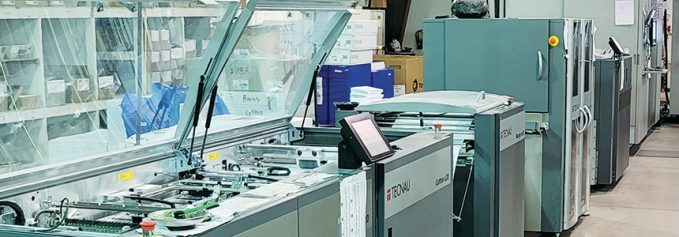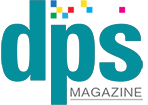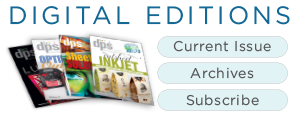
by Cassandra Balentine
Print and mail providers benefit from production workflow tools designed to automate and increase visibility throughout the process. These solutions enable businesses to automate, track, and report on jobs to improve efficiency and turnaround times.
Established in 1991 as a professional mailing and marketing organization, Borns Group, Inc. is a family owned operation. Located in SD, the company operates production facilities in both Aberdeen and Watertown. Founder Virgil Borns started the business as a mail pick-up service, which evolved to direct mail processing—including addressing and inserting—by the late 1990s. By 2000, it established a print setup, which it continues today. Currently, its customer base is mostly domestic, mailing into Canada in addition to all 50 states. It processes about 57 million pieces in volume annually and staffs 60 employees.
The print and mail service provider is able to offer printing, mailing, and design services to a variety of industries and customer types. It serves a number of clients in utilities for statements and marketing printing. “This allows us to understand and specialize in the unique needs of these types of organizations,” shares Lee Borns, VP, Borns Group, Inc.
Addressing Challenges
Throughout its evolution, the Borns Group identified several concerns within its production environment and sought a
solution that could improve turnaround time and allow it to onboard new jobs and complete client projects, scale operations and increase capacity, automate several automate touch points, reduce human error, lower labor costs, enable integration with postal processing software, and move to a PDF workflow.
With the right investments, The Borns Group knew it could produce work in a more cost-effective manner while speeding up the entire process and making it possible to bring in more customer jobs from both existing and new clients. Additionally, it wanted the ability to produce a quality of work that surpassed its previous products.
The print and mail provider looked seriously into a number of software and hardware vendors. “A few things that stuck about Solimar included their commitment to the PDF file format, the universal ability to work with all types of printers and other adjacent solutions, the breadth of solutions that would allow us to continue improving our workflows, and great references and support.”
Its hardware line up includes cutsheet and sheetfed offset presses, like the Ricoh Pro 9210 as well as the Ricoh VC40000 inkjet press. It also recently invested in a MCS Flowmaster inserter.
Winning with Workflow
The Borns Group benefits from being in control of its workflow. For much of this control, it relies on Solimar Systems’ Chemistry solution, a customer communications management platform that delivers enterprise workflow tools to enable the print and mail provider to stay abreast on what is happening on its production floor, bringing visibility, accessibility, and mobility into its operation.
Chemistry is a flexible solution and Borns says it is leveraged in a number of ways with its production devices. “Currently, most of the heavy lifting for the inkjet is done ahead of work batching and scheduling. As we continue to make changes to our processes we hope to leverage more of the Chemistry platform to better understand and control work as it is onboarded and sent through the production and delivery steps.”
Since Chemistry is a modular system, the Borns Group’s first goal was to implement Solimar Rubika. “This part of the solution is critical because it allows us to emulate the pre-printed shells that we used to produce on the offset press,” explains Borns. With the ability to manage this process digitally, it is able to bring white paper rolls into its inkjet press and come out with full-color products.
To achieve this White Paper Factory strategy, Borns Group had to move to PDF as a standard file format. Borns felt the transition to a full PDF workflow was key to its future vision. It was confident the Solimar solution would help to achieve its short- and long-term goals. “The Solimar Chemistry platform allows us to digitize preprinted shells that were previously produced in house on our offset presses, which significantly reduces the time it takes to produce work for our clients.”
Now the organization runs a complete PDF workflow through Solimar’s SOLindexer tools, which help leverage the data in the PDFs for further enhancements.
Automation is achieved with the SOLfusion automation engine. “This speeds up our processes and reduces errors,” explains Borns. “As part of our print environment transformation we look forward to utilizing the tracking, alerts, reporting, and dashboard capabilities for print environment visibility as offered in the SOLitrack product.”
It is in the process of installing flat screen monitors around its two locations to facilitate better visibility. “We believe SOLitrack will add value in this as we continue to evolve the role technology plays in our print environment. We also look forward to seeing our work remotely and hope to leverage the additional information for a better understanding of costs associated with producing print and digital work in our shop,” says Borns.
The benefits of its updated workflow are measurable. The company reports approximately $400,000 of new business, as well as significant savings in labor and operational costs since implementing Solimar Chemistry. “The results come from customer surveys and the number of new clients we were able to add to our business,” explains Borns. “This was part of a larger business change, moving away from pre-printed shells on our offset equipment and running them through digital cutsheet printers.”
The company also benefits from the move from a primarily PCL-based workflow to a PDF-based workflow. “By being able to work with PDF files coming from clients and better manage our current in-house design work, our entire customer base is experiencing higher client satisfaction and faster turnaround times,” states Borns.
The ability to get more work through prepress and production processes creates capacity to bring on new customers. “Solimar makes it possible to run an on demand workflow with PDFs that have a higher quality than the files we used to utilize,” he shares.
Borns admits that there are always challenges when making big changes in an organization. “Moving to a roll-fed digital inkjet press meant learning a new way of working, leveraging new tools, and putting new processes in place. Our people had to change the way they approach the work while also learning what questions they may not have known to ask in the past,” he shares.
Big Plans
Borns Group has witnessed continued growth and change. “Today we are counting on our path to take things to a new level and our partnerships with Solimar and other vendors are really helping this process. We are looking forward to the future,” says Borns.
As it adds capabilities, it plans to tie data and tracking information back into Solimar Chemistry to help its staff make informed business decisions. dps
May2021, DPS Magazine
workflow, document strategies



